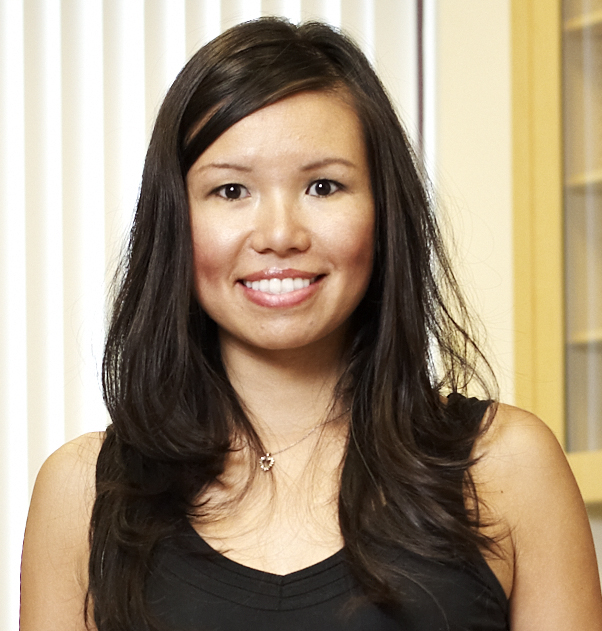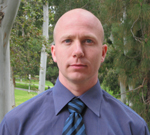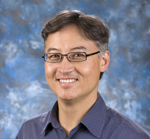Meet the New Samueli School Faculty
Seven assistant professors join the Samueli School
The Henry Samueli School of Engineering is pleased to welcome seven new assistant professors to the school and UC Irvine.
Biomedical Engineering
Michelle Khine, Ph.D., Assistant Professor
 Prior to joining UC Irvine, Michelle Khine was an assistant and founding professor at UC Merced from 2006-09. At UC Merced, Shrink Nanotechnologies Inc., the first start-up company originating from the youngest UC campus was spun out of the research developed in Khine’s lab. Khine’s expertise is in microfluidic technology for the detection and manipulation of cells.
Prior to joining UC Irvine, Michelle Khine was an assistant and founding professor at UC Merced from 2006-09. At UC Merced, Shrink Nanotechnologies Inc., the first start-up company originating from the youngest UC campus was spun out of the research developed in Khine’s lab. Khine’s expertise is in microfluidic technology for the detection and manipulation of cells. Khine received both B.S. (1999) and M.S. (2001) degrees in mechanical engineering from UC Berkeley. She received a Ph.D. (2005) in bioengineering from UC San Francisco and UC Berkeley. In the Berkeley Sensor and Actuator Center under Professor Luke P. Lee, Ph.D., Khine focused on developing microfabricated polymeric devices for cellular manipulation and analyses. As a Microsystems and Engineering Applications Institute Fellow, she concurrently worked at Sandia National Laboratory. While in graduate school, she spun out a company, Fluxion Biosciences (San Francisco, Calif.), based on her dissertation work of single-cell electroporation.
Chemical Engineering and Materials Science
Hung Nguyen, Ph.D., Assistant Professor
 Hung Nguyen’s expertise in computational modeling at the molecular level adds a new and important skill to the Department of Chemical Engineering and Materials Science. Nguyen has made major contributions in developing multiscale models in conjunction with discontinuous molecular dynamics, a novel computational approach that holds great promise in the study of complex molecular organizations.
Hung Nguyen’s expertise in computational modeling at the molecular level adds a new and important skill to the Department of Chemical Engineering and Materials Science. Nguyen has made major contributions in developing multiscale models in conjunction with discontinuous molecular dynamics, a novel computational approach that holds great promise in the study of complex molecular organizations. Nguyen received a B.S. degree in chemical engineering from the University of Florida, and a Ph.D. degree from North Carolina State University under the guidance of Professor Carol K. Hall in chemical and biomolecular engineering. His doctoral thesis focused on the competition between protein folding and aggregation, especially the formation of ordered structures such as amyloid fibrils, which have been implicated in the pathology of several neurodegenerative diseases including Alzheimer's and Parkinson's. Subsequently, Nguyen became a postdoctoral researcher working with Professor Charles L. Brooks, III, in molecular biology, computational chemistry and biophysics at the Scripps Research Institute (La Jolla, Calif.), and then at the University of Michigan. He examined the self-assembly and maturation process of viral capsids, which is a fundamental concept in virology and is of significant biomedical interest in nanotechnology and vaccine development.
Nguyen's current research program is devoted to investigating the self-assembly of biological and biomimetic nanoscale materials based on amino acids and on nucleic acids with applications in nanotechnology, drug delivery, tissue engineering, gene therapy, disease diagnostics, antiviral therapeutics and imaging agent development.
Mikael Nilsson, Ph.D., Assistant Professor
 Mikael Nilsson’s expertise in the field of nuclear energy and nuclear waste treatment, and encompasses both the fundamental and applied aspects of the field. Nilsson is a specialist in separations technology as it applies to the reprocessing of spent fuel from nuclear reactors. Nilsson also studies the effects of radioactive decay on solvents and chemicals used for nuclear waste management. Nilsson received an M.S. degree in chemical engineering and a Ph.D. in nuclear chemistry from Chalmers University of Technology, Sweden.
Mikael Nilsson’s expertise in the field of nuclear energy and nuclear waste treatment, and encompasses both the fundamental and applied aspects of the field. Nilsson is a specialist in separations technology as it applies to the reprocessing of spent fuel from nuclear reactors. Nilsson also studies the effects of radioactive decay on solvents and chemicals used for nuclear waste management. Nilsson received an M.S. degree in chemical engineering and a Ph.D. in nuclear chemistry from Chalmers University of Technology, Sweden. Nilsson is also part of a UC Irvine team that was recently awarded an infrastructure support grant for up to $300,000 from the U.S. Department of Energy to purchase equipment for nuclear energy research. The effort was initiated and led by Nilsson, together with Russell Detwiler, Ph.D., assistant professor of civil and environmental engineering and George Miller, Ph.D., senior lecturer in the Department of Chemistry and director of the UC Irvine TRIGA reactor facility. The group will use the grant money to structure a nuclear science and engineering education and research program at UC Irvine. Using the current UC Irvine TRIGA reactor facility as a foundation, they plan to increase the research scope and student pool by acquiring instruments for training students and supporting cutting-edge research in nuclear technology.
Electrical Engineering and Computer Science
Mark G. Bachman, Ph.D., Assistant Professor
 Mark G. Bachman earned a Ph.D. in experimental particle physics from the University of Texas, Austin. He has held previous positions at UC Irvine, most recently as an associate adjunct professor, and has now joined the Senate faculty as an assistant professor. He is also the associate director and co-founder of the Integrated Nanosystems Research Facility (INRF).
Mark G. Bachman earned a Ph.D. in experimental particle physics from the University of Texas, Austin. He has held previous positions at UC Irvine, most recently as an associate adjunct professor, and has now joined the Senate faculty as an assistant professor. He is also the associate director and co-founder of the Integrated Nanosystems Research Facility (INRF).His research interests address the development of integrated micro and nanosystems engineering for applications beyond microelectronics. His work has led to the development of new micromachining and integration techniques for semiconductors, metals, ceramics, polymers, and organic materials. Bachman's highly interdisciplinary research program includes projects pursuing the development of RF MEMS, biomedical microdevices, microsensor systems, human sensing, and technologies for the human-machine interface.
Three additional faculty members will be arriving on campus in 2010. Jasper Vrugt, Ph.D., assistant professor of civil and environmental engineering, will join UC Irvine from Los Alamos National Laboratories, and begins in January 2010. He is a graduate from the University of Amsterdam, and specializes in environmental systems modeling. Vrugt is the first hire at UC Irvine for the new Environmental Institute initiative.
Animashree Anandkumar, Ph.D., assistant professor of electrical engineering and computer science, received a Ph.D. degree from Cornell University, and is currently completing a postdoctoral fellowship at MIT. She will join the Department of Electrical Engineering and Computer Science in July 2010.
Wendy Liu, Ph.D., assistant professor of biomedical engineering, will join the Department of Biomedical Engineering in July 2010, after completing a postdoctoral fellowship at MIT. She specializes in cardiovascular technology, and received a Ph.D. degree from Johns Hopkins University.
